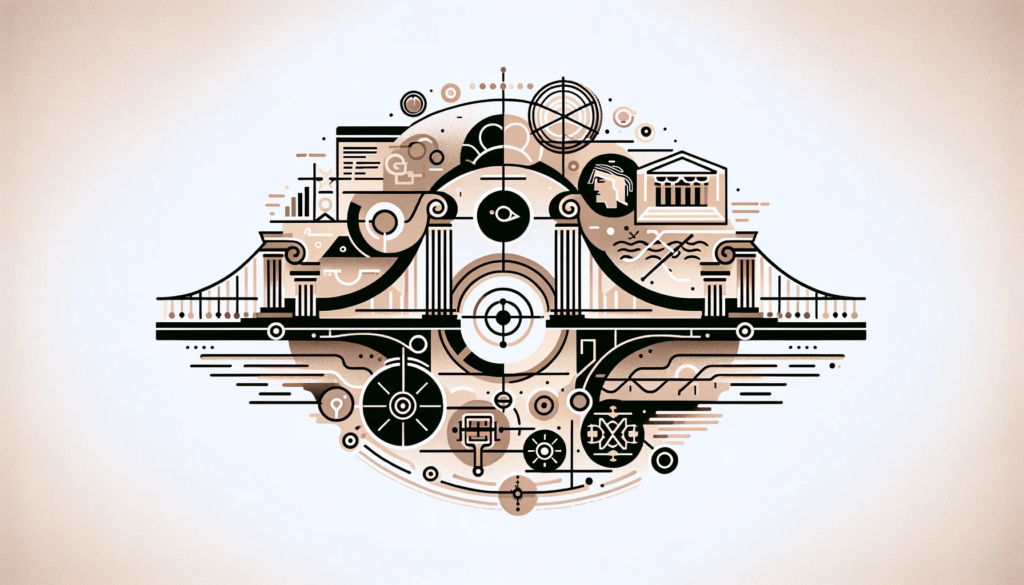
This post explores the application of the ancient Greek concept of τέχνη (techne) in modern educational technology. τέχνη, traditionally encompassing the realms of ‘art,’ ‘craft,’ or ‘skill,’ offers a unique perspective on the intersection between knowledge and its practical application. This exploration is critical in understanding the role and efficacy of technological tools in teaching, learning, and research within contemporary educational frameworks.
Introduction to τέχνη and Its Philosophical Underpinnings
Originating from ancient Greek philosophy, τέχνη refers to the craft of making or doing, a synthesis of knowledge and its practical application. This concept is particularly salient in the discussion of modern educational technology, where the mere presence of advanced tools is insufficient without a skilled application that enhances understanding and engagement in the educational process.
The Art of Pedagogy: Recontextualizing Teaching with Technology
In pedagogical practices, τέχνη transcends the traditional transmission model of teaching. The incorporation of technologies like interactive whiteboards and virtual reality in educational settings represents more than mere digital adjuncts; they are instruments through which educators can craft immersive and engaging learning experiences. This pedagogical approach aligns with the principles of τέχνη, emphasizing the skilled and artful use of tools to create a dynamic learning environment.
Learner Engagement and τέχνη: Fostering Active Participation
τέχνη in learning processes emphasizes the learner’s active role in engaging with technology. Platforms such as e-learning systems and educational software serve not just as repositories of information but as mediums through which learners can actively construct their knowledge. This approach is reflective of τέχνη, promoting a shift from passive reception to active engagement and exploration.
The τέχνη of Research: Technological Tools in Scholarly Inquiry
In the realm of academic research, τέχνη manifests in the meticulous and skilled use of technological tools for inquiry and discovery. Technologies such as advanced data analysis software and digital research libraries are integral in the modern research process, embodying τέχνη through the fusion of scholarly expertise and technological proficiency.
Digital Literacy: A Contemporary Extension of τέχνη
In contemporary educational discourse, τέχνη can be extended to encompass digital literacy, defined as the skillful and critical navigation, evaluation, and creation of information using various digital technologies. This component is crucial in preparing students to engage effectively with digital resources, embodying the essence of τέχνη in the digital age.
Collaborative Learning and Research: A τέχνη-driven Approach
Collaborative learning and research platforms exemplify τέχνη’s emphasis on collective practice and knowledge construction. Technologies facilitating collaborative efforts in education and research highlight the importance of merging individual skills and knowledge into a cohesive and shared educational endeavor.
Conclusion: Revitalizing τέχνη in Modern Educational Practices
In conclusion, the concept of τέχνη provides a valuable framework for understanding and enhancing the use of technology in education. By embracing τέχνη, educators, learners, and researchers can transform their interaction with technology from a utilitarian approach to an art form, thereby enriching the educational experience. This scholarly exploration advocates for a renewed focus on τέχνη within educational technology practices, aiming to navigate the digital educational landscape with greater skill, creativity, and purpose.